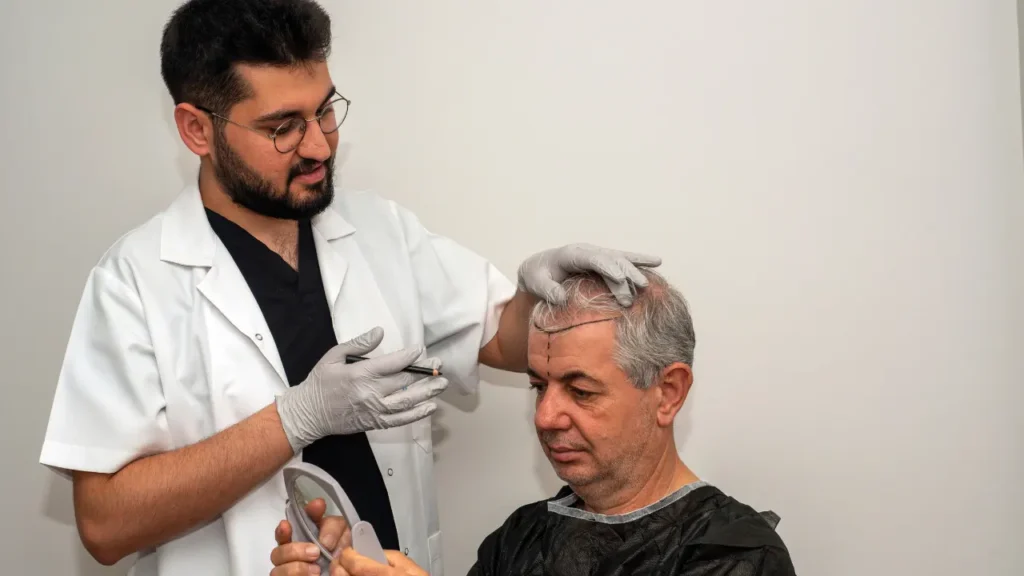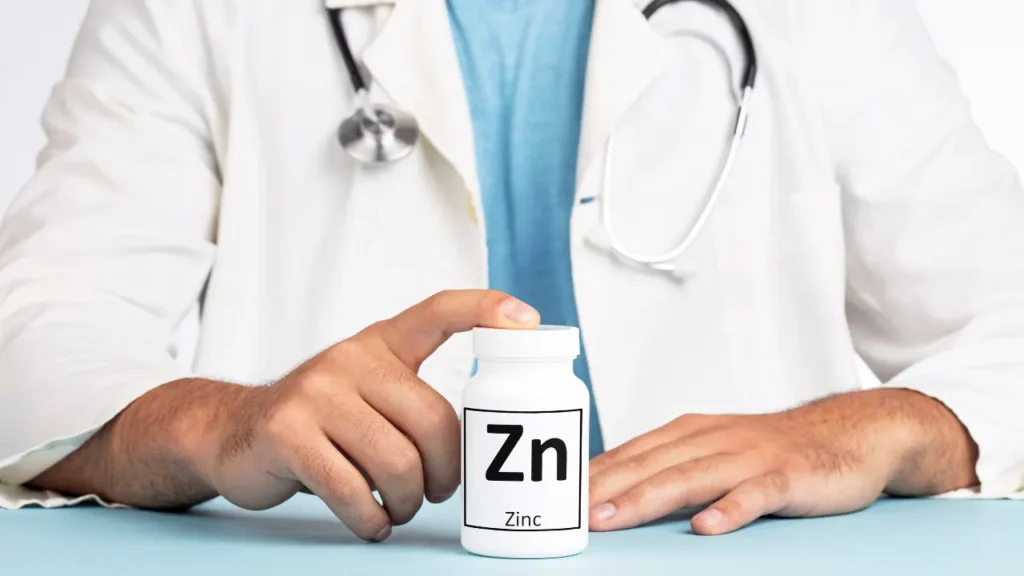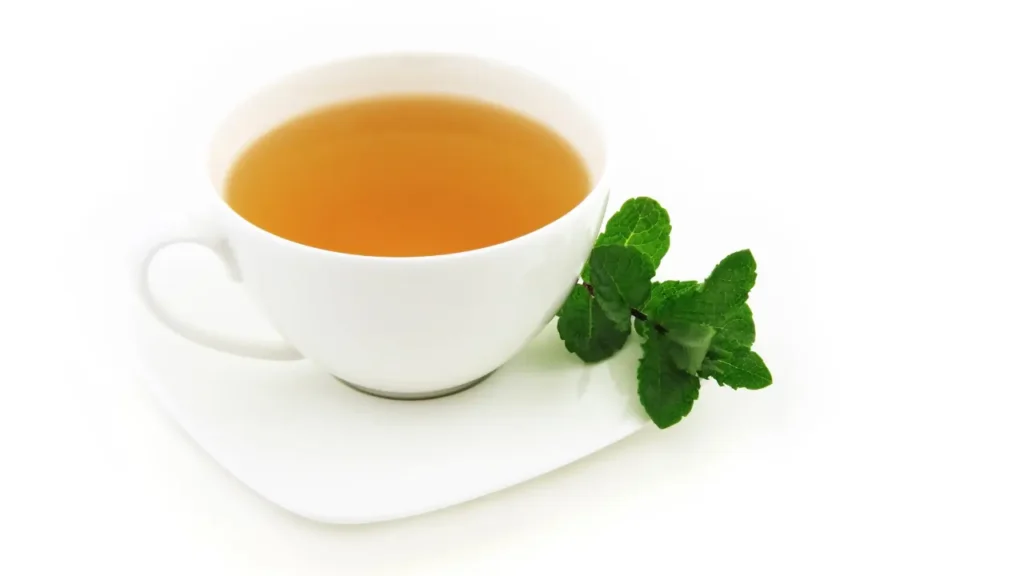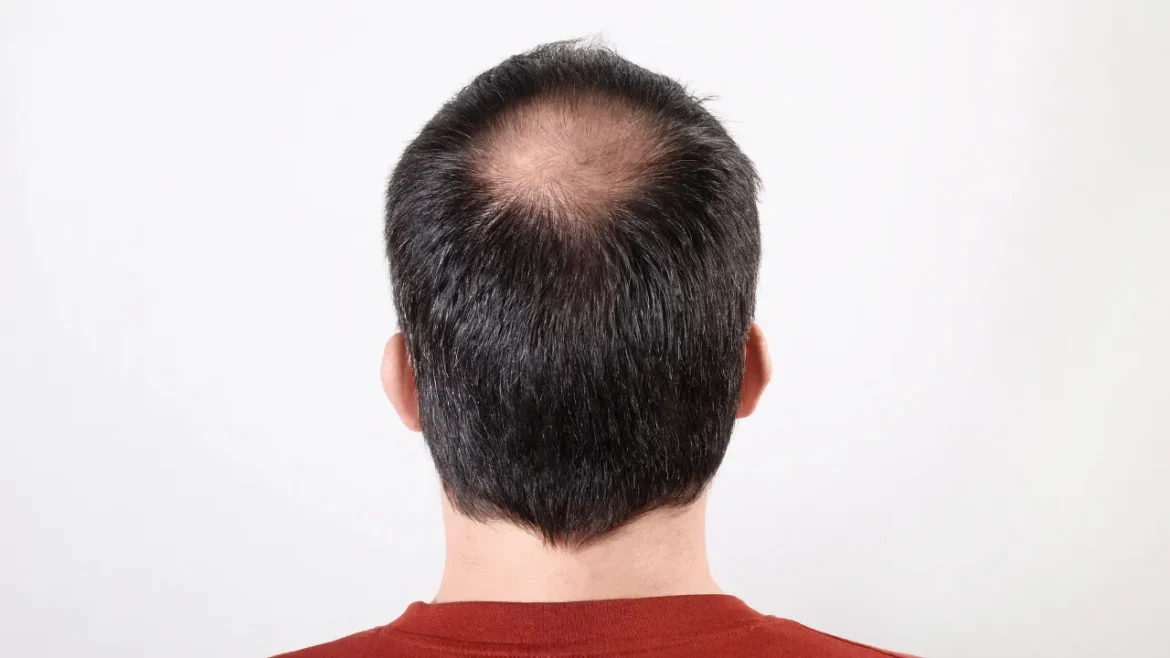Description
Alopecia areata is a condition that affects the hair follicles and can result in partial or complete hair loss on the scalp, the face, and other regions of the body. Both men and women are equally affected by it, and it can occur at any age. Alopecia areata, also known as alopecia universalis, is a condition that may occasionally result in total body hair loss.
You May Also Like:
FINDING THE BEST TURKEY TAIL MUSHROOM POWDER: 5 TOP BRANDS REVIEWED
FINDING THE BEST LION’S MANE MUSHROOM SUPPLEMENT: 5 TOP BRANDS REVIEWED
Alopecia Areata: Description, Causes, And Treatment Protocol is an original (HealthXWire) article.
Possible Causes
A combined effect of genetic, immunological, and environmental factors are the probable cause of alopecia areata, while the precise root of its cause is still undetermined. According to research, those who have a family tradition of alopecia areata can be at greater risk to experience the disorder themselves. Additionally, environmental triggers, such as traumatic experiences or viral infections, can also contribute to the autoimmune response that causes hair loss.
Exacerbating and Mitigating Factors
The onset of alopecia areata can be brought on by a number of factors. The following are a few of the aggravating circumstances:
Stress: For some people, the beginning of alopecia areata is commonly associated with emotional stress.
Illness: Alopecia areata can be brought on by specific conditions, such as thyroid dysfunction.
Medications: Certain medicines, like chemotherapy drugs, may cause hair loss.
Trauma: Alopecia areata can occur as a result of trauma on the scalp, like those caused by surgery or an accident.
There are also many mitigating variables that can decrease the likelihood of acquiring alopecia areata which involve:
Healthy Lifestyle Choices: A healthy diet, consistent exercise, and stress management are all great ways to decrease the risk of developing alopecia areata.
Regular Check-Ups: Regular dermatologist visits can help determine an early diagnosis and prompt treatment of alopecia areata before it can get progressively worse.
Early Treatment: Alopecia areata can be treated early to stop it from growing worse and can also prevent hair loss.

Standard Treatment Protocol
According to the severity and amount of hair loss, there are a number of alternatives included in the conventional treatment approach for alopecia areata. The main treatment objectives are to promote hair growth and to stop further hair loss. The following are a few popular alopecia areata treatment alternatives:
Topical Corticosteroids: Inhibiting the immune system and reducing swelling of the hair follicles can be accomplished by applying these anti-inflammatory creams or ointments topically on the scalp. They can be used for the treatment of alopecia areata that are mild to moderate.
Oral Noninflammatory Drugs: Ruxolitinib and tofacitinib are examples of medications that are used to inhibit the body’s immune system and encourage hair growth. Usually, alopecia areata instances that are more severe require the usage of these medications.
Intralesional Corticosteroid Injection: This entails injecting corticosteroids right into the scalp’s affected region. It is frequently used in alopecia areata situations that are more severe and involve substantial hair loss.
Minoxidil: This topical treatment works by boosting the flow of blood into hair follicles to encourage hair growth. It can take a few months before results are seen and is frequently used in conjunction with other therapies.
Topical Immunotherapy: Although irritating, this chemical is applied to the scalp in order to elicit an allergic response and activate the immune system. Usually, only those with severe alopecia areata instances receive this kind of therapy.
Hair Transplantation: Transplanting healthy hair follicles to the afflicted location entails removing them from other regions of the scalp. In general, this is only used in situations where other therapies have failed.
Phototherapy: Some people with alopecia areata may find that exposure to ultraviolet radiation stimulates hair growth. Combining this therapy with other forms of therapy is most recommended and is very common.


Treatment Options
There are numerous therapy alternatives for alopecia areata, involving natural therapies, nutritional supplements, and herbal remedies, along with standard treatment methods. Some of these methods can be applied as stand-alone or alongside supplementary therapies. The typical standard treatments include:
Aromatherapy: Several essential oils, including lavender, thyme, and rosemary, have been found to promote hair growth and may be effective in the treatment of alopecia areata. These oils encourage relaxation and lower stress levels, and can be used topically on the scalp or can be incorporated into other aromatherapy treatments.
Nutritional Supplements: According to research, there are certain dietary supplements that have shown potential in treating alopecia areata, but further research is still required to confirm their effectiveness. The most often researched dietary supplements for treating alopecia areata are listed below:
- Vitamin D
Low vitamin D levels are linked to hair loss, and vitamin D is necessary for keeping healthy hair and skin. According to certain research, vitamin D supplements can be beneficial for those who have alopecia areata. To verify its efficacy, more research is necessary.
- Biotin
The B vitamin biotin, sometimes referred to as vitamin H, aids in the growth of hair. According to some studies, biotin tablets may help patients who are experiencing hair loss, especially those suffering from alopecia areata, grow more hair. To validate its efficacy, more research is necessary because the evidence is conflicting.
- Zinc
Zinc is a necessary mineral that is important for many physical health aspects, including hair development. Zinc pills can help those who have hair loss, and especially those who have alopecia areata, grow more hair, according to research. To validate its efficacy, more research is required.
- Omega-3 fatty acids
Essential fatty acids like omega-3’s play an essential role in overall wellness. Omega-3 supplements can promote hair development and lessen hair loss, particularly in those who have alopecia areata, according to research. To verify its efficacy, more research is necessary.
- Iron
For the growth of healthy hair, iron is a necessary mineral. Studies have shown that iron supplementation can prove to be beneficial for those with alopecia areata who are also suffering from low iron levels since low iron levels are commonly linked to hair loss. To verify its efficacy, more research is necessary.
Acupuncture: Acupuncture is a form of traditional Chinese treatment that includes inserting needles into particular body sites. It has been demonstrated to be successful in lowering stress levels and encouraging relaxation, which could assist in alleviating the indications of alopecia areata.


Herbal Remedies: Many people with alopecia areata use herbal medicines as supplemental or alternative therapies in addition to standard medical care. Here are some herbal treatments for alopecia areata that might prove beneficial:
- Aloe Vera
Aloe vera is known for its calming and healing properties, and many who have alopecia areata may find it helpful. It has enzymes that aid in stimulating the growth of hair by clearing the scalp of dead skin cells and enhancing blood flow. Aloe vera can also help in reducing scalp inflammation, which frequently contributes to hair loss.
- Saw Palmetto
The southeastern region of the US is home to a species of palm tree known as saw palmetto. Although it is frequently used as a herbal treatment for prostate health, it can also be helpful for those with alopecia areata. DHT is a hormone that has been scientifically connected to hair loss and saw palmetto extract can potentially inhibit its synthesis.
- Peppermint Oil
Another essential oil that can be beneficial to individuals with alopecia areata is peppermint oil. It includes menthol, which cools the skin and can be helpful in boosting blood circulation to the scalp. Additionally, the anti-fungal and antimicrobial properties of peppermint oil can help decrease swelling and ward off scalp infections.
- Ginkgo Biloba
A popular herbal supplement for enhancing cognitive and memory abilities is ginkgo biloba, and those suffering from alopecia areata might also benefit from it. Ginkgo biloba enhances the flow of blood to the scalp and improves circulation, which can help promote healthy hair growth. Ginkgo biloba also contains antioxidant properties that could help shield hair follicles from harm.
- Green Tea
The popular beverage green tea is high in antioxidants and can greatly help those who are suffering from alopecia areata. Catechins, which have been demonstrated to possess anti-inflammatory properties and may aid in reducing scalp inflammation, are highly present in them. Green tea can also aid in preventing the development of DHT, which frequently contributes to hair loss.


Conclusion
Alopecia areata has unknown specific causes, nevertheless, it is considered to be an autoimmune disease. This implies that healthy cells, as in the scenario of hair follicles, are mistakenly attacked by the immune system. This illness can be passed down genetically, so that factor can potentially be involved in how it develops.
Additional resources for further reference
https://www.aad.org/public/diseases/hair-loss/types/alopecia/causes
https://www.webmd.com/skin-problems-and-treatments/guide/alopecia-areata
Important Note: The information contained in this article is for general informational purposes only, and should not be construed as health or medical advice, nor is it intended to diagnose, prevent, treat, or cure any disease or health condition. Before embarking on any diet, fitness regimen, or program of nutritional supplementation, it is advisable to consult your healthcare professional in order to determine its safety and probable efficacy in terms of your individual state of health.
Regarding Nutritional Supplements Or Other Non-Prescription Health Products: If any nutritional supplements or other non-prescription health products are mentioned in the foregoing article, any claims or statements made about them have not been evaluated by the U.S. Food and Drug Administration, and such nutritional supplements or other health products are not intended to diagnose, treat, cure, or prevent any disease.
Table of Contents


